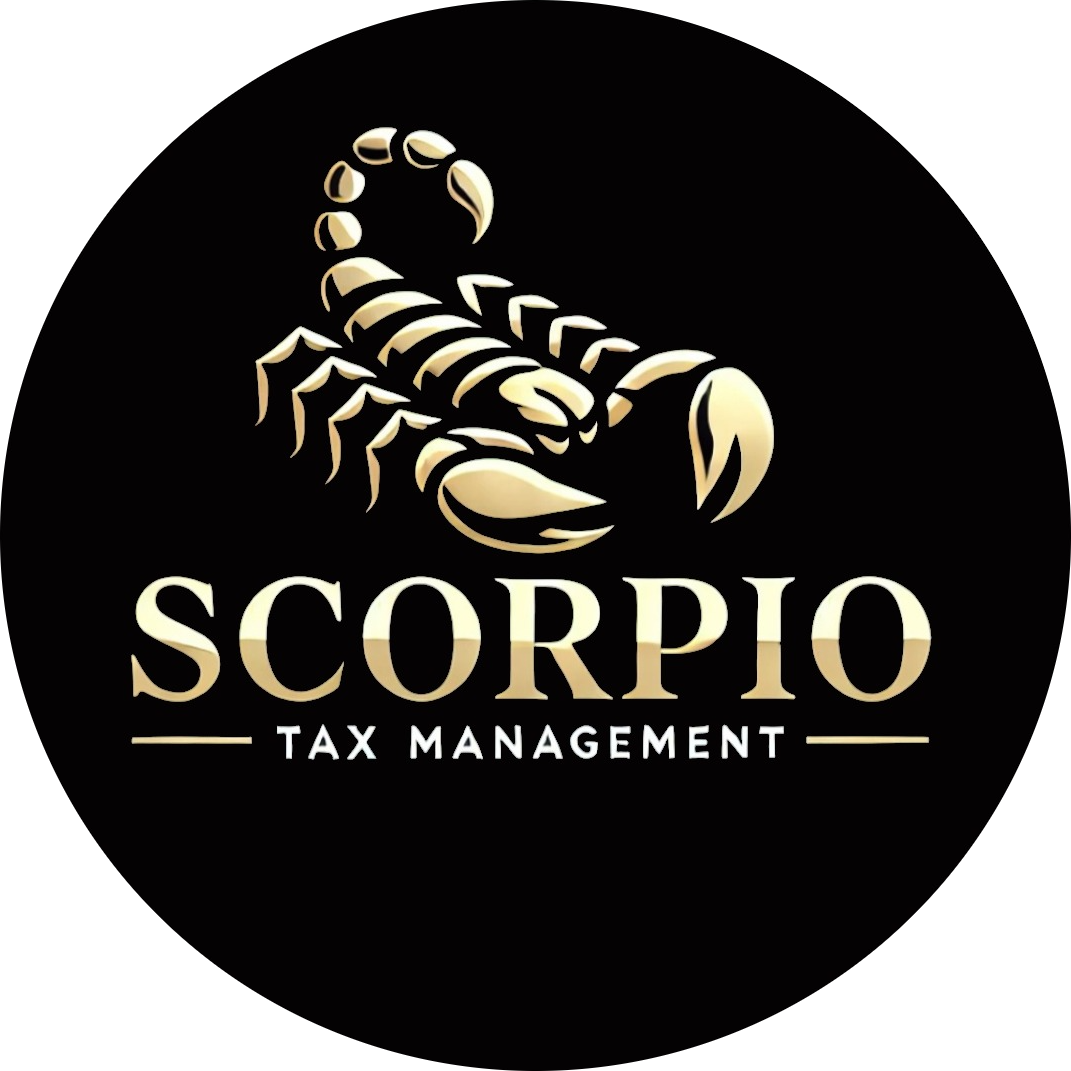Tax Planning for S-Corp Owners
Tax planning & tax strategy is the process of organizing financial affairs in a way that legally minimizes tax liabilities while ensuring compliance with all applicable laws. For S-corporations (S-Corps) —which are pass-through entities under Subchapter S of the Internal Revenue Code— tax planning is essential to avoid overpaying taxes, maximize deductions, and reduce audit risk.
This article provides a technical overview of tax planning and outlines best practices specifically tailored for S-corporation owners, shareholders, and tax professionals.
Write to Tax@S-CorpTax.com, or call (858) 779-4125.
Tax Planning
1. Pay Reasonable Compensation to Shareholder-Employees
The IRS requires shareholder-employees to receive a reasonable salary before taking profit distributions. Salaries are subject to payroll taxes, while distributions are not.
Best Practices:
Conduct a market analysis to determine fair compensation based on industry, duties, and region.
Document the salary rationale in corporate records for audit protection.
Balance salary and distributions strategically.
Example: If your S-Corp earns $200,000, a $60,000 salary and $140,000 in distributions may be defensible and tax-efficient.
2. Maximize Deductions and Credits
S-Corps may claim a wide range of deductions:
Business expenses: Rent, marketing, office supplies.
Home office deduction: If space is used exclusively for business.
Vehicle expenses: Mileage or actual cost.
Retirement contributions: SEP-IRA, Solo 401(k).
Health insurance premiums: Under qualifying conditions.
Best Practices:
Use accounting software to track expenses.
Work with a tax professional to apply complex deductions like the QBI deduction (up to 20% of qualified business income).
Monitor available credits, including the Work Opportunity Tax Credit and R&D Tax Credit.
3. Time Income and Expenses Strategically
Strategic timing helps manage taxable income.
Best Practices:
Defer income: Push invoices into next year if income is expected to rise.
Accelerate expenses: Pay deductible costs before year-end.
Use cash basis accounting: Allows better timing control.
Example: Expecting $300,000 revenue in 2025 and $400,000 in 2026? Defer $50,000 in income to January 2026 to reduce 2025 taxes.
4. Leverage Retirement Plans for Tax Savings
S-Corps can set up powerful tax-deferred retirement plans:
SEP-IRA: Up to 25% of compensation or $69,000 (2025).
Solo 401(k): Up to $69,000 + $7,500 catch-up (age 50+).
SIMPLE IRA: Easier administration, lower limits.
Best Practices:
Select the right plan with help from a financial advisor.
Max out contributions to lower current taxable income.
Follow IRS rules, especially when you have employees.
5. Optimize Health Insurance and Fringe Benefits
Health premiums for shareholders, spouses, and dependents may be deductible if paid or reimbursed by the S-Corp.
Best Practices:
Use an Accountable Plan to reimburse employee expenses tax-free.
Set up HSAs with high-deductible plans for triple tax benefits.
Ensure health premiums are added to the W-2 and deducted properly.
6. Maintain Accurate Records and Work with a Tax Professional
Recordkeeping is essential to support deductions and stay audit-ready.
Best Practices:
Use cloud-based software for real-time tracking of income, expenses, and payroll.
Retain receipts, invoices, and statements for 3–7 years.
Engage an Enrolled Agent with S-Corp expertise to review filings and identify savings.
7. Plan for State-Specific Taxes
Some states impose additional taxes on S-Corps. For instance, California has a 1.5% net income tax (minimum $800).
Best Practices:
Research your state’s S-Corp tax rules.
Integrate state taxes into your broader planning.
Consult a local tax advisor for compliance.
8. Stay Informed About Tax Law Changes
Tax law changes may affect S-Corp strategy, including updates to QBI deductions, retirement limits, or payroll thresholds.
Best Practices:
Subscribe to IRS updates and credible tax sources.
Attend tax-related webinars and briefings.
Revisit your tax strategy with a CPA annually.
Don’t attempt to handle your tax situation all by yourself… work with professionals!
The trouble and money a good tax strategist can save you often pays off right away.
Scorpio Tax Management can help you. There’s no cost to have a first conversation.
We are Enrolled Agents, licensed directly by the IRS to advise and represent taxpayers.
Scorpio Tax Management can assist High Income Earners and Business Owners in all 50 states
Please write us at Tax@S-CorpTax.com, or call (858) 779-4125. You can also schedule a call in advance HERE.
California
We assist business owners in all the following California cities and their surrounding areas:
San Francisco, including Marin County (Sausalito, Mill Valley, Tiburon), Silicon Valley (Palo Alto, Menlo Park, Mountain View), and the entire East Bay (Oakland, Berkeley, Fremont).
Paso Robles, including Atascadero, San Luis Obispo, Morro Bay, and all other parts of the Central Coast.
Santa Barbara, including Buellton, Santa Ynez, Montecito, Ventura, Oxnard, and Carpinteria.
Los Angeles, including Malibu, Santa Monica, Beverly Hills, Hollywood, South Bay (Manhattan Beach, Redondo Beach), and Pasadena.
Orange County, including Anaheim, Huntington Beach, Newport Beach, Irvine, Laguna Beach, and Costa Mesa.
San Diego, including Del Mar, La Jolla, Rancho Santa Fe, Encinitas, Oceanside, and Carlsbad.
Palm Springs, including Palm Desert, Rancho Mirage, Indio, La Quinta, and all other parts of the Coachella Valley.
Florida
We serve business owners across Florida’s vibrant cities and regions, from bustling urban centers to coastal communities:
Miami, including Miami Beach, Coral Gables, Coconut Grove, Key Biscayne, and the greater Miami-Dade County area.
Fort Lauderdale, including Hollywood, Pompano Beach, Weston, Davie, and all of Broward County.
West Palm Beach, including Boca Raton, Delray Beach, Jupiter, Palm Beach Gardens, and the entire Palm Beach County area.
Tampa, including St. Petersburg, Clearwater, Sarasota, Bradenton, and the broader Tampa Bay region.
Orlando, including Winter Park, Kissimmee, Lake Buena Vista, Celebration, and the greater Central Florida area.
Jacksonville, including St. Augustine, Ponte Vedra Beach, Amelia Island, and all of Duval and St. Johns Counties.
Naples, including Marco Island, Bonita Springs, Estero, and the entire Collier County and Southwest Florida region.
Nevada
Our tax services extend to Nevada’s key business hubs and surrounding communities, supporting entrepreneurs in a tax-friendly state:
Las Vegas, including Henderson, Summerlin, North Las Vegas, Boulder City, and the entire Clark County area.
Reno, including Sparks, Carson City, Truckee, and the broader Washoe County and Northern Nevada region.
Lake Tahoe (Nevada side), including Incline Village, Stateline, Zephyr Cove, and the surrounding South Lake Tahoe area.
Henderson, including Green Valley, Anthem, Seven Hills, and nearby communities in the Las Vegas Valley.
Elko, including Spring Creek, Carlin, and the greater Northeastern Nevada region.
Mesquite, including St. George (nearby Utah border), Bunkerville, and the Virgin Valley area.
Pahrump, including Nye County and surrounding rural communities west of Las Vegas.
Tennessee
We support business owners in Tennessee’s dynamic cities and regions, from music hubs to growing entrepreneurial centers:
Nashville, including Franklin, Brentwood, Hendersonville, Murfreesboro, and the greater Davidson and Williamson County areas.
Memphis, including Germantown, Collierville, Cordova, Bartlett, and the broader Shelby County region.
Knoxville, including Farragut, Maryville, Oak Ridge, Sevierville, and the entire East Tennessee area.
Chattanooga, including Lookout Mountain, Signal Mountain, Hixson, and the surrounding Hamilton County and Southeast Tennessee region.
Clarksville, including Hopkinsville (nearby Kentucky border), Springfield, and the greater Montgomery County area.
Johnson City, including Kingsport, Bristol, Elizabethton, and the Tri-Cities region of Northeast Tennessee.
Gatlinburg, including Pigeon Forge, Sevierville, and the Smoky Mountains area, catering to tourism-driven businesses.
We are not limited to the above states… Reach out to us! Our contact info is below.









